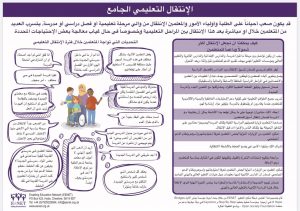إعداد: الباحث الحقوقي إسلام التميمي
ماهية حق ذوي الإعاقة في التعليم:
يعتبر الحق في التعليم من أبرز الحقوق الأساسية التي يجب ضمان توفيرها للأشخاص ذوو الإعاقة، فهو يُعدّ بمثابة رافعة أو ركيزة لبقيّة الحقوق الأخرى المرتبطة بالاشخاص ذوي الاعاقة بشكل خاص، ذلك لأنه يرتبط مباشرة بتأهيل الاشخاص ذوي الاعاقة والقدرة على دمجهم في المجتمع وجعلهم فئة منتجة في المجتمع، وتوفير هذا الحق للاشخاص ذوي الاعاقة يتطلب توفير العديد من الإجراءات الإستباقية التي تمهد لإيصال التعليم المناسب للشخص ذو الاعاقة حسب نوع وحجم الإعاقة.
وتتوزع المسؤولية عن توفير التعليم للاشخاص ذوي الاعاقة على القطاع الحكومي ومؤسسات المجتمع المدني سوياً، فدمج الاشخاص ذوي الاعاقة في المدارس الحكومية وتوفير أدوات التعليم المساندة لهم مهمة القطاع الحكومي، إضافة إلى مسؤولية ذلك القطاع بالتعاون مع المؤسسات المعنية بحقوق ذوي الاعاقة عن خلق البيئة المناسبة والوعي المجتمعي لدمج ذوي الاعاقة في التعليم.
لقراءة المقال من المصدر الرجاء النقر هنا


